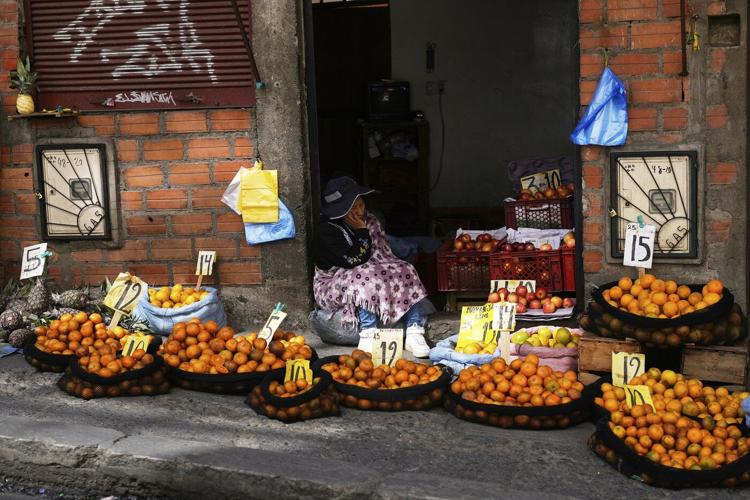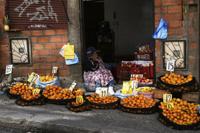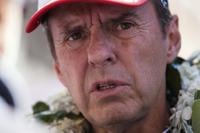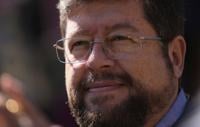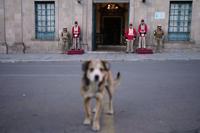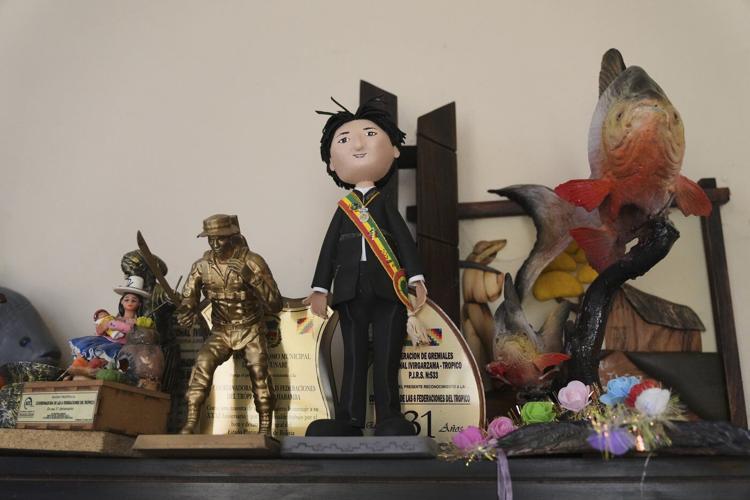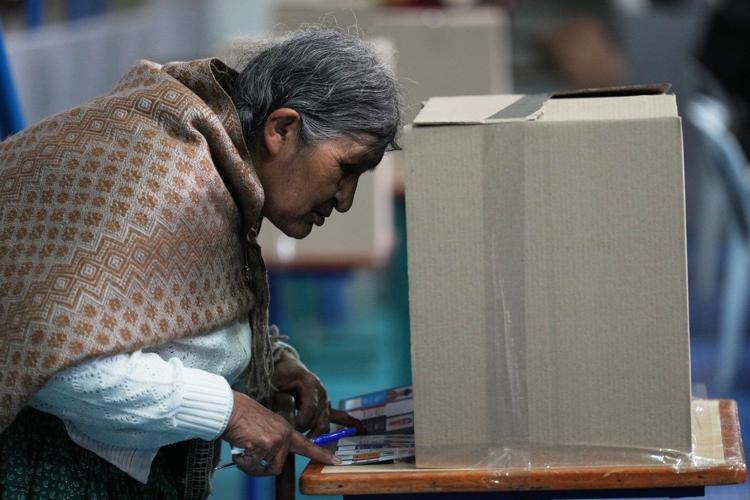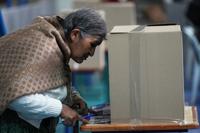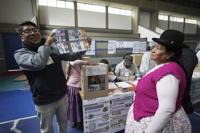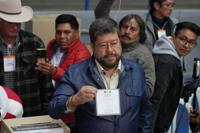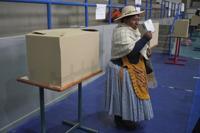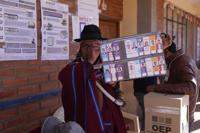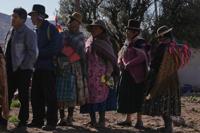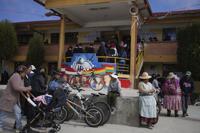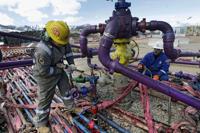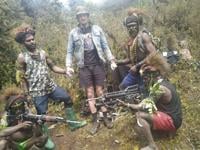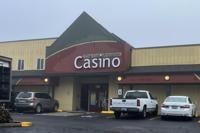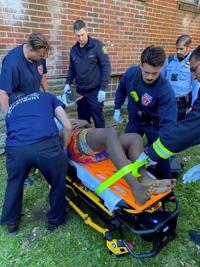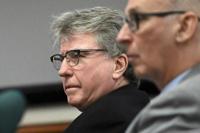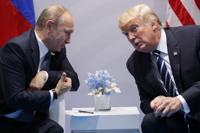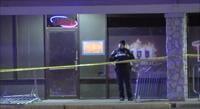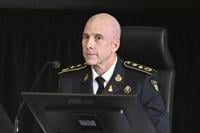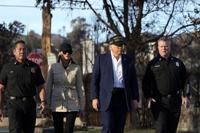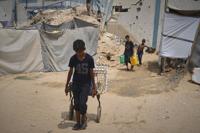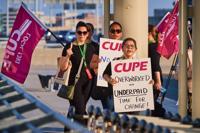LA PAZ, Bolivia (AP) ‚ÄĒ After a lackluster campaign overshadowed by a looming economic collapse, Bolivians voted on Sunday for a new president and parliament in elections that could see a right-wing government elected for the first time in over two decades.
The vote, which could spell the end of the Andean nation‚Äôs long-dominant leftist party, is one of the most consequential for Bolivia in recent times ‚ÄĒ and one of the most unpredictable.
In the run-up to Sunday, a remarkable . Polls showed the two leading right-wing candidates, multimillionaire and former , locked in a virtual dead heat.
Voting is mandatory in Bolivia, where some 7.9 million Bolivians are eligible to vote.
‚ÄúI have rarely, if ever, seen a situational tinderbox with as many sparks ready to ignite,‚ÄĚ said Daniel Lansberg-Rodriguez, founding partner of Aurora Macro Strategies, a New York-based advisory firm.
Bolivia could follow rightward trend
The election is being closely watched across Latin America for its potential impact on the economic fate and political stability of this long-restive, resource-rich nation.
It also marks a watershed moment for the Movement Toward Socialism, or MAS, party, whose founder, charismatic ex-President Evo Morales, rose to power as part of the ‚Äúpink tide‚ÄĚ of leftist leaders that swept into office across Latin America during the commodities boom of the early 2000s. , the party is fighting for its survival in Sunday's elections.
The outcome will determine whether Bolivia ‚ÄĒ a nation of about 12 million people with the and crucial deposits of rare earth minerals ‚ÄĒ follows a growing trend in Latin America, where right-wing leaders like , Ecuador‚Äôs and have surged in popularity.
A right-wing government in Bolivia could trigger a major geopolitical realignment for a country now allied with and world powers such as , and .
Bolivians bitter as they vote for the ‚Äėlesser evil‚Äô
The somber mood of the election was clear as voting kicked off at polling stations in downtown La Paz, Bolivia’s capital, and a steady stream of voters began to trickle in.
Bolivians waiting to vote at three different high schools across the city expressed confused, cynical and bitter emotions, fed by an annual inflation rate of more than 16% last month (compared to 2% less than two years ago), a scarcity of fuel and absence of hope for swift improvement. Several said they were voting for ‚Äúel menos peor,‚ÄĚ the lesser evil.
The right-wing opposition candidates bill the race as a chance to chart a new destiny for Bolivia. But both front-runners, Doria Medina and Quiroga, have served in past neoliberal governments and run for president three times before ‚ÄĒ losing at least twice to Morales.
‚ÄúPeople were waiting for a new, popular candidate, and in this, the opposition failed us,‚ÄĚ said Ronaldo Olorio, a farmer from the coca-growing Yungas region who once identified as a fervent Morales supporter. ‚ÄúMy vote is one of anger, of discontent. I don't like Doria Medina or Quiroga. But I have to vote for one of the two.‚ÄĚ
Right-wing candidates vow to restore US relations
Doria Medina and Quiroga have praised the and vowed to restore ‚ÄĒ ruptured in 2008 when Morales expelled the American ambassador.
They also have expressed interest in doing business with Israel, which has , and called for foreign private companies to invest in the country and develop its rich natural resources.
After storming to office in 2006, Morales, Bolivia’s first Indigenous president, nationalized the nation’s oil and gas industry, using the lush profits to reduce poverty, expand infrastructure and improve the lives of the rural poor.
After , as well as a bid for an in 2019 that set off and led to his , Morales has been by Bolivia’s constitutional court.
His ally-turned-rival, President Luis Arce, on account of his plummeting popularity and nominated his senior minister, Eduardo del Castillo.
As the party splintered, who hails from the same union of coca farmers as Morales, launched his bid.
Ex-president Morales casts a null vote
Rather than back the candidate widely considered his heir, Morales, of Chapare and evading an arrest warrant on charges related to his relationship with a 15-year-old girl, has urged his supporters to or leave them blank.
Dozens of coca-growing union activists formed a human chain around Morales to protect him from arrest as he cast his null-and-void ballot in Chapare, in central Bolivia. A large wreath of coca leaves hung around his neck.
He flashed a rare smile as he left the polling station, shaking hands with supporters who showered him in white confetti.
"I’m convinced that if there’s no fraud, the null vote will win," he told reporters after voting.
Conservative candidates say austerity needed
Whoever wins faces daunting challenges. Doria Medina and Quiroga have warned of the need for a painful fiscal adjustment, including the elimination of Bolivia’s generous food and fuel subsidies, to save the nation from insolvency.
Some analysts caution this risks sparking social unrest.
‚ÄúA victory for either right-wing candidate could have grave repercussions for Bolivia‚Äôs Indigenous and impoverished communities,‚ÄĚ said Kathryn Ledebur, director of the Andean Information Network, a Bolivian research group.
‚ÄúBoth candidates could bolster security forces and right-wing para-state groups, paving the way for violent crackdowns on protests expected to erupt over the foreign exploitation of lithium and drastic austerity measures.‚ÄĚ
If, as is widely expected, no presidential candidate receives more than 50% of the vote, or 40% of the vote with a lead of 10 percentage points, the top two candidates will compete in a runoff on Oct. 19 for the first time since Bolivia’s 1982 return to democracy.
All 130 seats in Bolivia’s Chamber of Deputies, the lower house of Parliament, are also up for grabs, along with 36 in the Senate, the upper house.

